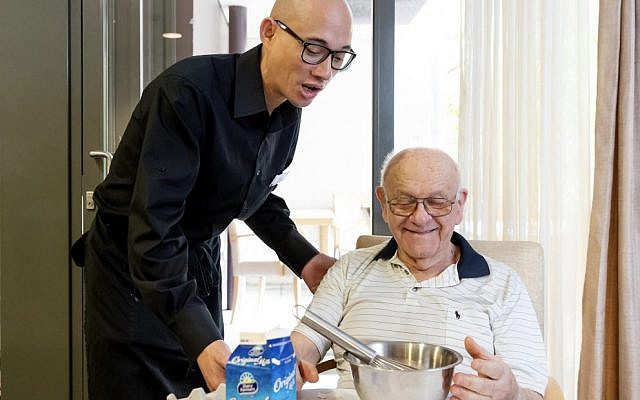A new age for dementia care
IN a first for Montefiore, residents living with dementia are now participating in cooking and preparing their own meals on a regular basis.

IN a first for Montefiore, residents living with dementia are now participating in cooking and preparing their own meals on a regular basis.
As part of the new Montefiore Dementia Model (MDM), up to 30 residents in the Randwick home’s renovated Special Care Unit can engage in everyday activities – with the support of a new staff homemaker.
“The model is around being more actively involved and participating in everyday life,” said Montefiore’s dementia specialist and research coordinator, Dr Jacki Wesson. “The home has a lot of activities that are relatively easy for people with some cognitive impairment to participate in – they often involve simple, repetitive actions or are very familiar tasks.”
For people living with dementia, as short-term memory fades, more entrenched skills attained earlier in life often remain, and Montefiore’s model aims to enable residents to utilise those skills.
“With all these things, if you don’t use it, you lose it,” Wesson commented.
Operating as a pilot program, the unit consists of home-like neighbourhoods of 10-20 people, and is planned to roll out in Montefiore Hunters Hill and other relevant services. “Our goal is to de-prescribe medication in the appropriate circumstances, and use the environment and behavioural strategies to settle residents,” remarked Montefiore’s director of professional services Janine Grossman.
“The biggest thing about this model is getting the families involved, and really letting them still feel like they have continuation in eating together, and being with their family member … Spouses can make it their home too, and are free to go into the kitchen.”
The MDM – currently being implemented in stages and to be officially rolled out later this year – represents a broader shift in aged care towards more home-like neighbourhoods.
Research has shown this more intimate style of living improves quality of life, reduces hospital admissions and emergency department visits, and decreases responsive behaviours such as wandering or pacing.
Grossman said the shift “started years back with the Dutch village”.
Along with aspects of the original Dutch model, which opened in 2009 and includes smaller-scale living quarters with a village environment, the MDM places emphasis on interdisciplinary clinical and allied health care.
“It is likely to have a more targeted and rehabilitative focus,” remarked Wesson. “The way we support people living with dementia is really in quite an exciting space at the moment.”
SOPHIE DEUTSCH

comments